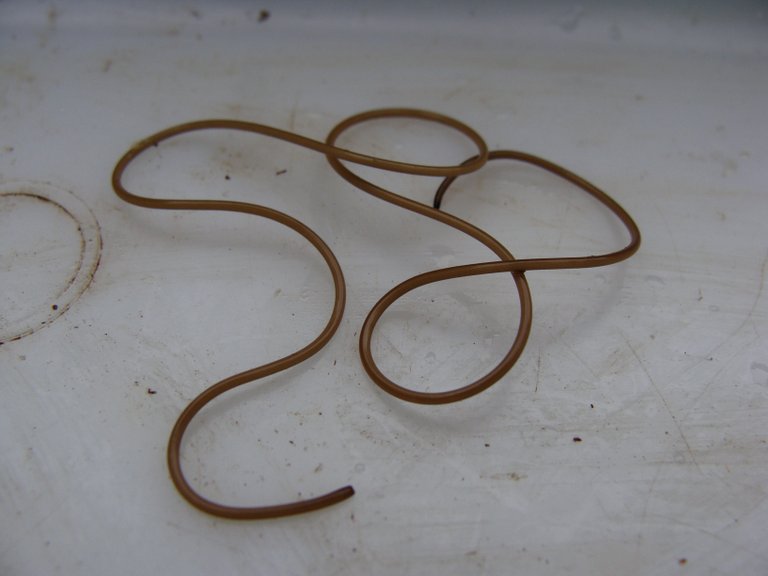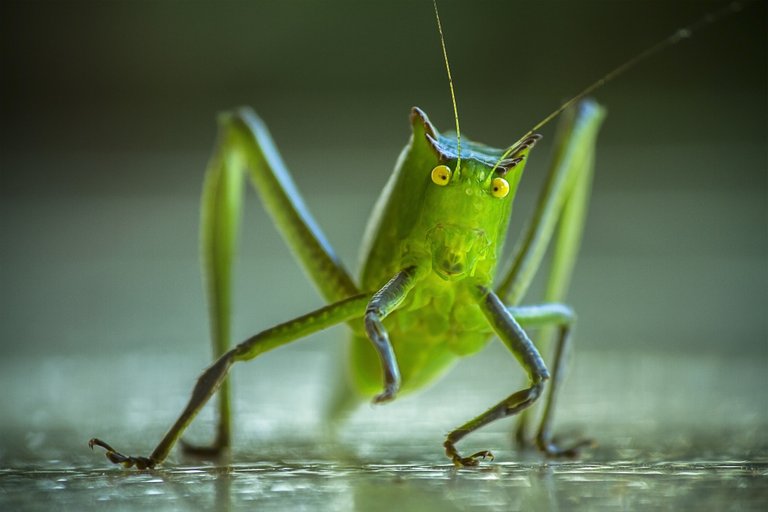Dato che la natura ha un discutibile senso dell’umorismo, nel corso dei millenni ha deciso di creare un sacco animaletti poco adatti a correre, saltare e sorridere e che quindi non possono far altro che passare la loro vita qualcun altro, fino al giorno in cui decidono di ringraziare l’ospite facendolo impazzire e dilaniandolo dall’interno.
Un esempio di questi simpatici amici sono i nematomorfi.
I nematomorfi sono simili a vermi, il loro nome volgare inglese è infatti ‘’horsehair worm’’, che significa ‘’vermi a crine di cavallo’’; secondo un antica credenza i nematomorfi si originavano infatti da crini di cavallo occasionalmente caduti in acqua.
Nel Phylum Nematomorpha ci sono più di 320 specie e sono stati per lungo tempo inseriti nei nematodi, ma se li osserviamo bene le differenze non sono poche.
La parete del corpo è molto simile a quella dei nematodi ma possiedono solo dei muscoli longitudinali; non possedendo dei muscoli radiali non possono muoversi come i lombrichi allungandosi e accorciandosi, possono solo ondeggiare come una frusta.
Questo è un tipo di movimento che non ti rende particolarmente adatto a correre nei prati, per questo motivo le fasi giovanili le passano all’interno di artropodi, ad esempio le specie Paragordius tricuspidatus e Spinochordodes tellinii parassitano gli ortotteri (grilli e cavallette per intenderci).
Le larve, rilasciate in acqua dagli amorevoli genitori, si arrampicano sulla vegetazione e aspettano che qualche cavalletta le mangi, oppure si scavano la strada con la loro proboscide uncinata nel corpo di qualche libellula che ha deciso di posarsi sulla superficie di uno stagno.
Così un bel giorno Beppe il grillo decide di mangiare proprio quel filo d’erba vicino a una pozzanghera dove le larve lo stavano aspettando.
I giovani nematomorfi una volta dentro Beppe passeranno le giornate a nutrirsi dei suoi liquidi interni mentre lui non si accorge di nulla.
Passano i giorni, Beppe il grillo continua la sua vita la girando con i suoi amici, bevendo, mangiando e facendo quello che di solito fanno i grilli, a un certo punto però inizia ad essere strano e senza preavviso si butta nella prima pozza d’acqua che trova.
Beppe non è un campione olimpionico di nuoto, anzi nuota da schifo, ma perché allora si lancia di colpo in una pozzanghera?
Sembra che i nematomorfi una volta entrati nella fase adulta rilascino delle sostanze chimiche che riescono in qualche modo a influenzare i neurotrasmettitori del cervello del povero Beppe, non si conoscono ancora con precisione i meccanismi che stanno dietro a tutto questo, fatto sta che Beppe adesso inizia a sentirsi malino.
Dal corpo di Beppe iniziano a uscire dei vermicelli sottili ma lunghi fino a un metro che sembrano non finire mai, finché Beppe smette di dimenarsi e ci abbandona per sempre.
E così i nematomorfi hanno quello che hanno sempre voluto, nessuna necessità di spostarsi più di tanto e una bella pozzanghera per fare le cosacce, nella fase adulta la loro bocca e la faringe possono essere visti come un cordone che è stato riempito di cellule e per questo si pensa che, dopo Beppe, non mangeranno nient’altro fino alla loro morte.
Si potranno così concentrare sul riprodursi a destra e a manca e lasceranno ai loro figli il compito di cercare altri Beppe da smembrare.
Povero Beppe.

Fonti:
Diversità animale
Wikipedia
L’orologiaio miope
Eng
Since nature has a questionable sense of humor, over the millennia it has decided to create a lot of little animals that are unsuitable for running, jumping and smiling and that therefore can only spend their lives on someone else, until the day they decide to thank the guest by driving him crazy and tearing him apart from inside.
An example of these nice friends are the nematomorphs.
Nematomorphs are similar to worms, their English vulgar name is in fact ''horsehair worms''; according to an ancient belief that nematomorphs originated from horsehair occasionally fallen in water.
In the Phylum Nematomorpha there are more than 320 species and they have been inserted in the nematodes for a long time, but if we observe them well the differences are not few.
The wall of the body is very similar to that of the nematodes but they have only longitudinal muscles; not having radial muscles they cannot move like earthworms stretching and shortening, they can only sway like a whip.
This is a type of movement that does not make you particularly suitable for running in the meadows, for this reason the juvenile phases pass them inside arthropods like the species Paragordius tricuspidatus and Spinochordodes tellinii parasite orthoptera (crickets and grasshoppers to be precise).
The larvae, released into the water by their loving parents, climb the vegetation and wait for some grasshopper to eat them, or dig their way with their trunk hooked into the body of some dragonfly that has decided to settle on the surface of a pond.
So one fine day Beppe the cricket decides to eat just that blade of grass near a puddle where the larvae were waiting for him.
The young nematomorphs once inside Beppe will spend the days feeding on his internal liquids while he doesn't notice anything.
The days pass, Beppe the cricket continues his life turning it around with his friends, drinking, eating and doing what crickets usually do, but at a certain point he starts to be strange and without warning he jumps into the first puddle of water he finds.
Beppe is not an Olympic swimming champion, in fact he swims like shit, but why then does he suddenly throw himself in a puddle?
It seems that once the nematomorphs enter the adult phase they release chemicals that somehow manage to influence the neurotransmitters in poor Beppe's brain, we still don't know exactly the mechanisms behind all this, the fact is that Beppe now feels sick.
From Beppe's body, thin but up to one meter long vermicelli begin to come out, until Beppe stops wriggling and leaves us forever.
And so the nematomorphs have what they always wanted, no need to move around much and a nice puddle to do the nasty things, in the adult phase their mouth and pharynx can be seen as a cord that has been filled with cells and for this reason it is thought that, after Beppe, they won't eat anything else until they die.
They will thus be able to concentrate on reproducing left and right and leave it to their children to look for other Beppe to dismember.
Poor Beppe.

Sources:



!discovery 30
This post was shared and voted inside the discord by the curators team of discovery-it
Join our community! hive-193212
Discovery-it is also a Witness, vote for us here
Che storia... Non la sapevo!
!BEER